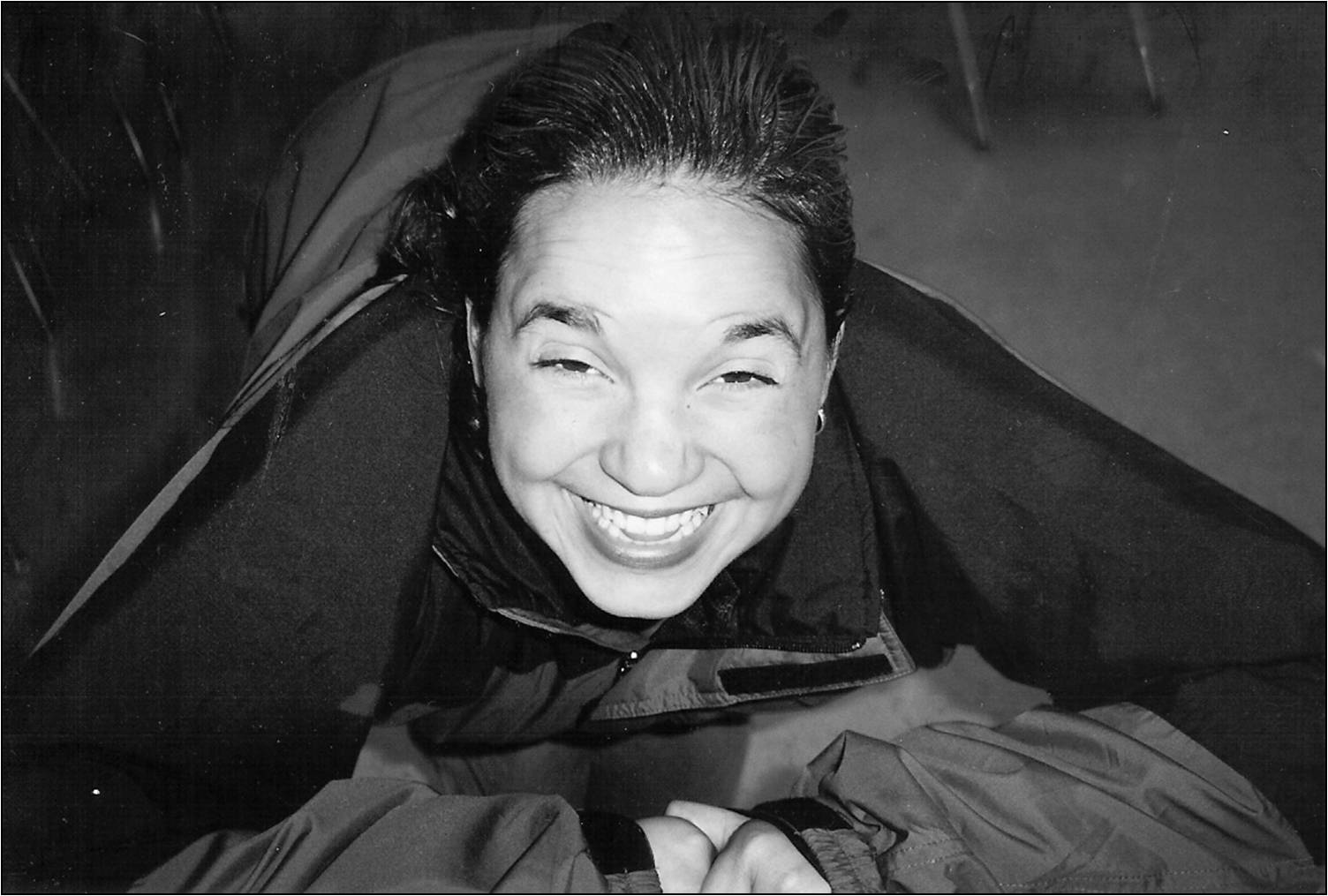
If only this picture was in color! My hair was dyed blue that day to reward the girl's soccer team for a bet we made about winning a game. Here I am, pre-game, lying over a desk in my classroom as players came in.
For a project that I have been developing, I wrote a list of questions to serve as an activist’s autobiography. Here I answer the first five for myself. If you are a journaler or are so inclined, I hope you’ll answer them for yourself– either here or in your own journal. I’ll share the other questions (and my answers) here periodically.
1. What is the first memory you have of being in a community?
Living on a military base as a little girl and watching how all the families came together to support one another. We were everybody’s kids on our street, and we were all siblings in a way. My very first community was a color-blind, class-blind community—at least as a kid it felt that way—and that, I think, informed many of my sensibilities growing up.
2. What was your place in that community, at that time?
I was the youngest kid in that community and so, in many ways, I was like a mascot. Being filled with wonder and having an admiration of others has stayed with me.
3. How did people respond to you during that time?
i was a really sunny kid. While I am sure I drove my older brother and sister nuts, I think I fit right in otherwise.
4. What is the best thing you have ever done?
My best work was probably as a high school teacher. I think that I was exactly who I needed to be to do what I was doing at that time. That, to this day, might also be my favorite thing I have ever done—not that writing Hijas Americanas wasn’t a fabulous experience because it was, but the joy of teaching Is that you could see exactly how you were doing as you were doing it. You could see if there were vacant eyes looking at you and adjust. You could be the emotional connection that sparked someone’s desire to learn. And if it didn’t work out the way you wanted It to at the end of the day, you could start over the next day. That said, I could never go back to teaching high school because I could not physically do it the way that I feel I must do it and not wear myself out. At the end of three years of teaching, I was tragically—we’re talking hospital visits—sick from pouring myself into it so absolutely. But I didn’t know how to do it a different way and, even if I did, I probably wouldn’t allow myself to do it a different way.
5. What was so great about it?
I had the capacity to make a difference in a young person’s life just by making that choice everyday. Early on in my teaching career, maybe even before it began, I understood that powerful learning happened with an emotional connection. If you are excited about a subject, then you are passionate about learning it. but very few of my students walked into my classroom excited to learn US History. I believed that if I could make them excited about me, I could make them emotionally connect to what I was teaching. And I also had no illusions that what happened in the War of 1812 was the most important thing they could learn from me. It was important in the sense that they needed to know it to graduate. It was important in the sense that understanding history helps you learn from mistakes and from brilliant moves. But the most important thing I did everyday was say to them, “the 30 of us are a family for the next 90 minutes. We are all we have and we have to be good to each other.” And then we went on to figure out how to be good together and good to each other. It was a laboratory on community every day and each class developed its own personality and flavor.



#4 and #5 are so true. I truly believe you were there for a reason. I’m so blessed that God allowed our paths to cross.You made more of an impact on the EC members lives than you know.
You are loved ;-).